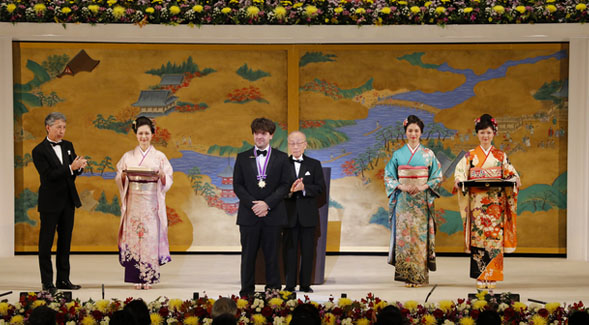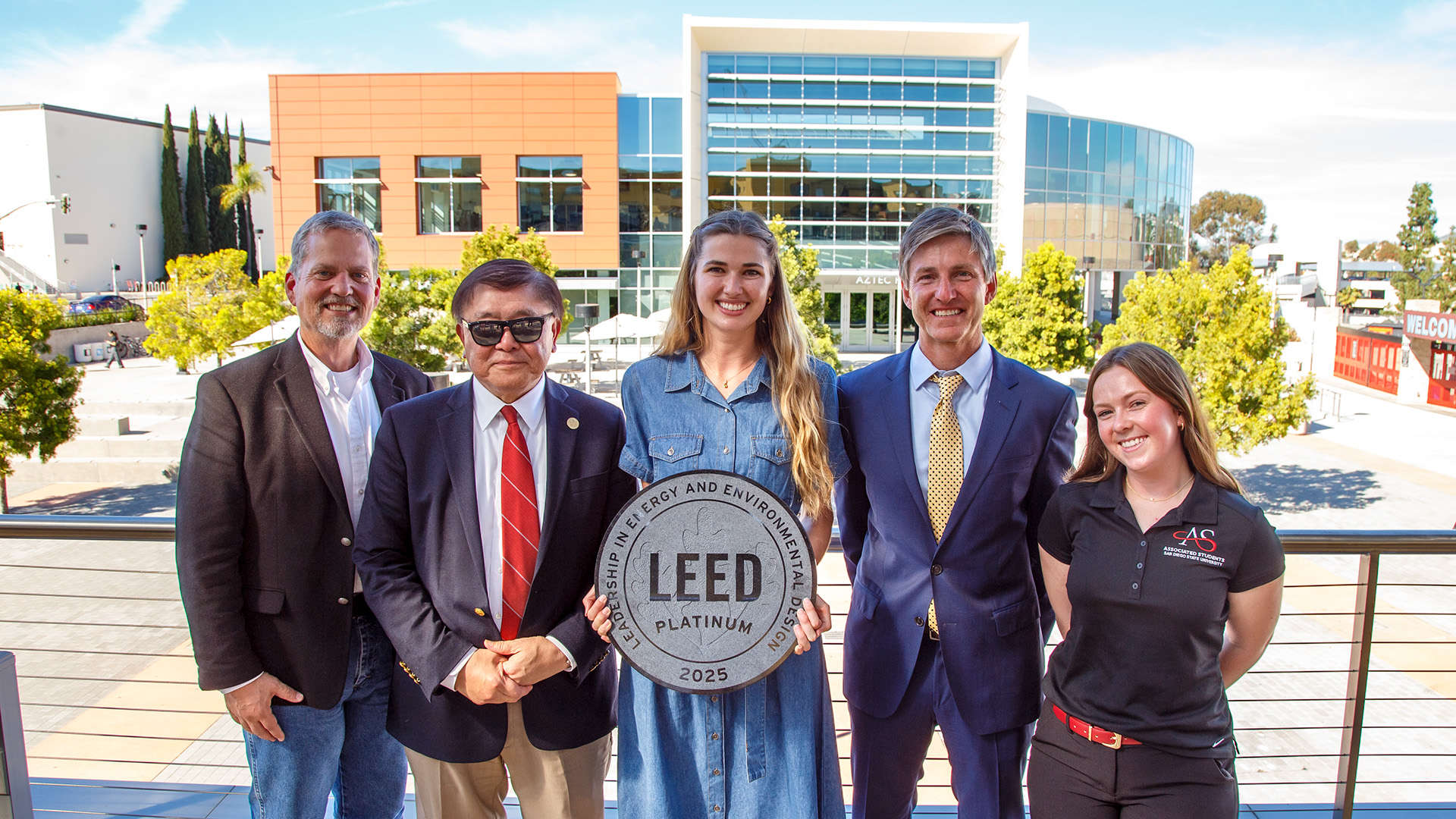SDSU Hosts Kyoto Prize Recipient
Karl Deisseroth will speak at SDSUs Montezuma Hall on March 20.

As part of the annual Kyoto Prize Symposium, San Diego State University will host Stanford University Neuroscientist and Kyoto Prize recipient in Advanced Technology, Karl Deisseroth on Wednesday, March 20. Deisseroth, 47, is the youngest award recipient in the Kyoto Prize’s 34-year history.
The Kyoto Prize is awarded annually by the Inamori Foundation to outstanding scholars in the areas of advanced technology, basic sciences and art and philosophy.
Deisseroth, the D. H. Chen Professor of Bioengineering and of Psychiatry and Behavioral Sciences at Stanford, is credited with creating an innovative optical tool known as “optogenetics,” which enables researchers to manipulate neurons with unprecedented precision and visualize neural circuits in fine detail.
“As a result of this work, we know now which cells and connections across the brain actually control key behaviors of pleasure, reward, social interaction, and motivation to meet challenges — as well as, on the negative side, symptoms of anxiety, depression and fear,” Deisseroth said. “This optogenetic technology has taken hold throughout neuroscience and now enables us to test precise cellular basis for behavior by controlling the brain’s circuitry.”
Deisseroth’s 90-minute presentation will begin at 10 a.m. on March 20 in Montezuma Hall at the Conrad Prebys Aztec Student Union. The event is free and open to the public, but registration is requested.
SDSU has also arranged for high school students to attend Deisseroth’s talk with the goal of introducing them to the university and the idea of pursuing careers in STEM (science, technology, engineering and mathematics) fields.
Other Kyoto Prize Symposium events
Deisseroth’s presentation is one piece of the three-part Kyoto Prize Symposium hosted jointly by SDSU, University of California San Diego (UCSD), University of San Diego (USD) and Point Loma Nazarene University.
In addition to Deisseroth, this year’s Kyoto Prize laureates are:
In Basic Sciences, mathematician Masaki Kashiwara, a project professor at Kyoto University, played a decisive role in creating and developing the field of algebraic analysis. His work has greatly influenced the study of mathematics worldwide and contributed strongly to its advancement. Kashiwara will speak at 2:00 p.m. on Wednesday, March 20, at UCSD.
In Arts and Philosophy, artist Joan Jonas, a professor emerita at Massachusetts Institute of Technology (MIT), created a new artistic form in the early 1970s by integrating performance art with the then newly emerging medium of video recording. Her works span nearly 50 years. Jonas will give two talks at USD on Thursday, March 21, at 10:30 a.m. and at 2:30 p.m.



